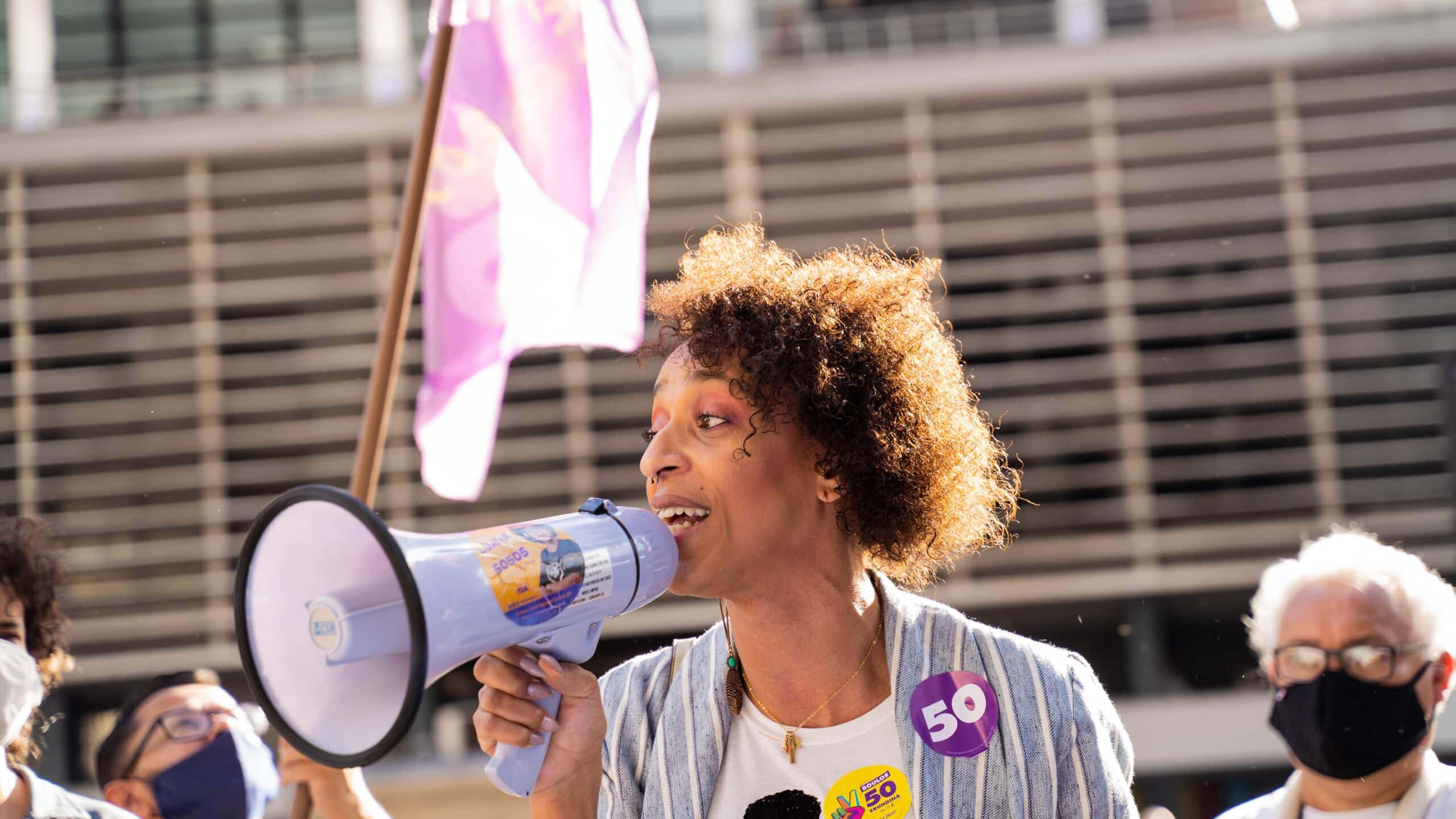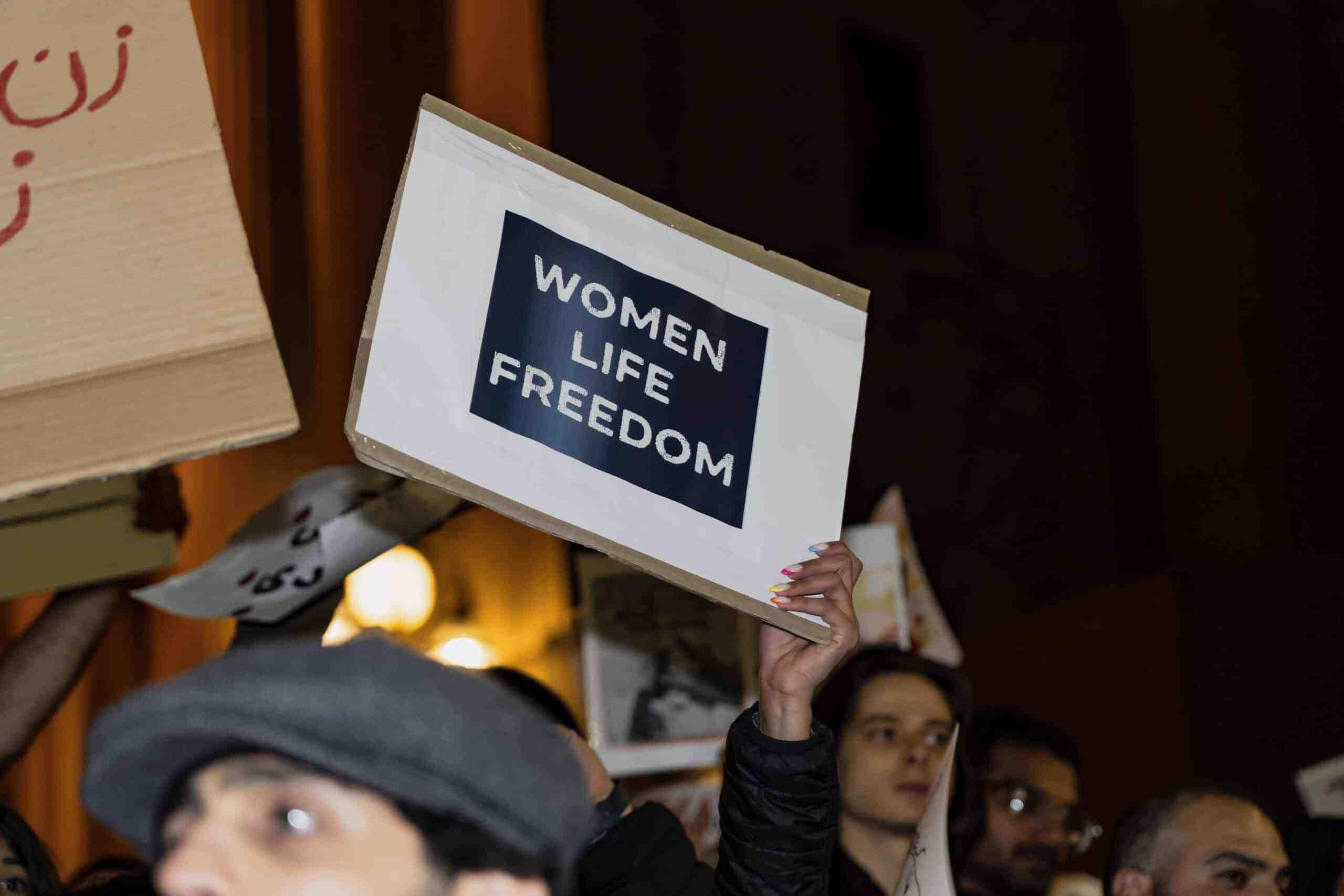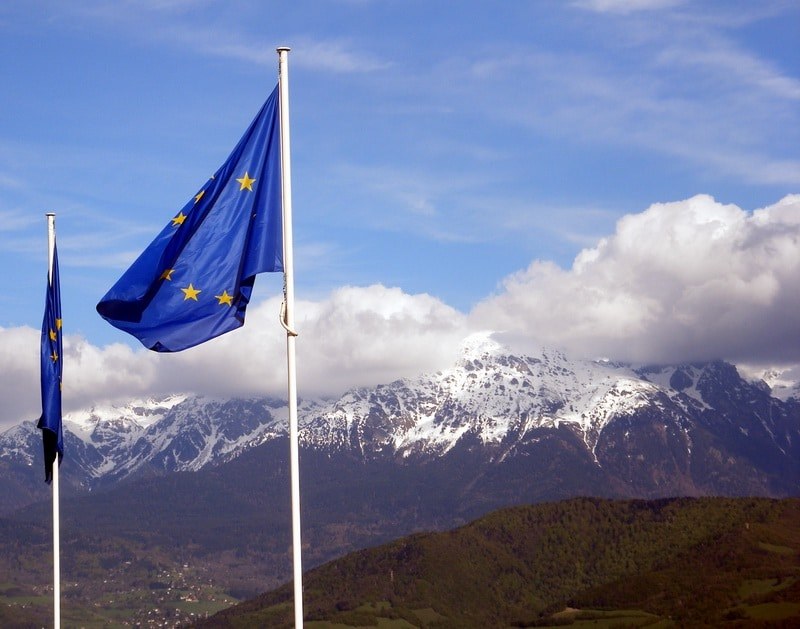Welcome to our roundup of news and current events related to ethics and international affairs! Here’s some of what we’ve been reading this past month:
 Nord Stream pipes before construction. Photo credit: Harald Hoyer
Nord Stream pipes before construction. Photo credit: Harald Hoyer
NPR: The Nord Stream pipelines have stopped leaking. But the methane emitted broke records
On September 26, the Nord Stream pipeline suffered several leaks, which appear to have been caused by underwater explosions. By October 4, the leaks had been stopped, but the rupture appears to be the “single largest discharge of methane” ever recorded, releasing at least half a million metric tons of methane. Methane is eighty times better at trapping heat than carbon dioxide, which makes the leaks coming from the Nord Stream pipeline a serious environmental concern. The leak, while large, is only one to two days’ worth of usual methane emissions from the fossil fuel industry, which highlights the need to curb global methane emissions to seriously tackle global warming.
Read more about environmental efforts, a global climate response, and climate justice in Ethics & International Affairs:
Fighting Fire with a Thermometer? Environmental Efforts of the United Nations (2020: 34.3)
Climate Justice and Informal Representation (2022: 36.2)
 Newly elected Congressperson, Erika Hilton. Photo credit Sâmia Bomfim, Vira Voto Boulos
Newly elected Congressperson, Erika Hilton. Photo credit Sâmia Bomfim, Vira Voto Boulos
The Guardian: Brazilian left celebrates election wins for trans and Indigenous candidates
While the survival of far-right candidate and current president Jair Bolsonaro in Brazil's presidential elections left many shocked, there were wins in smaller elections that deserve more attention to better understand Brazil’s political landscape. While Brazil’s Congress and Senate remain under the control of a coalition of right and far-right parties, for the first time in Brazil’s electoral history, two transgender candidates, Erika Hilton and Duda Salabert, have won seats in congress. Both campaigned on platforms pushing for more LGBT rights in Brazil. Two Indigenous people, Sônia Guajajara and Célia Xakriabá, also won seats in congress, representing the progressive PSOL party. While it remains to be seen who will win the presidency, these victories show that there is space for more inclusive politics in Brazil concerning LGBT and Indigenous rights.
Read more about human rights, Indigenous land rights, and decolonization in Ethics & International Affairs:
The State's Imperial Shadows (2021: 35.4)
Human Rights in the Seventy-Fifth Year of the UN (2020: 34.3)
Resources for the People—but Who Are the People? Mistaken Nationalism in Resource Sovereignty (2021: 35.1)
 Solidarity protest in Melbourne, Australia. Photo credit: Matt Hrkac
Solidarity protest in Melbourne, Australia. Photo credit: Matt Hrkac
RFL/RL: Khamenei Warns Of Further Crackdown As Protests In Iran Over Woman's Death Continue
Widespread protests in Iran were sparked by the death of Mahsa Amini, a 22-year-old woman who died in police custody in mid-September. The protests have grown in scope and size since then. Iran’s supreme leader, Ayatollah Ali Khamenei, did not comment on Amini’s death until October 3, which only increased fury among the protestors. Her death, while in custody on charges of “inappropriate attire,” has spurred new calls for women’s rights. However, coupled with a summer of water shortages and poor living conditions, the protests have extended beyond this, particularly into the sphere of education. Latest protests at the Isfahan University of Technology have been against the repression of students at Sharif University in Tehran. Other protests have been supported by the Fars Province Lawyers' Association and the Iranian Teachers' Union's Coordination Council, among others. Khameni has warned that there will be a crackdown on the protests if things continue as they are, evidenced by more heavy-handed practices used by security forces in the last few days.
Read more about feminist perspectives on violence, cultural challenges to the global order, and resistance in Ethics & International Affairs:
Continuums of Violence and Peace: A Feminist Perspective (2020: 34.1)
The Myth of the “Civilization State”: Rising Powers and the Cultural Challenge to World Order (2020: 34.2)
The Ethics of (Un)Civil Resistance (2019: 33.3)
 Photo credit: Anders Sandberg
Photo credit: Anders Sandberg
DW: EU countries again carrying out more deportations
Almost 100,000 people were ordered out of the 27-member bloc in the second quarter of 2022. This figure represents a 15 percent increase in deportation orders and an 11 percent increase in deportations carried out from the second quarter of 2021. The largest number of deportations came from France, which follows from a policy the country implemented starting in June 2021 to deport more alleged radicals to purportedly increase security. The next three countries with the largest numbers of deportees were Germany, Sweden, and Greece. Primarily, the deportees have come from Albania, Georgia, Russia, and Turkey. Italy also had a huge spike in deportations, producing a 2000 percent increase in deportation orders from the first quarter of 2022 to the second quarter of 2022. While some deportations were back to the person’s original issuing EU member state, most deportees were sent out of the European Union.
Read more about refugees, labor migration, and EU labor politics in Ethics & International Affairs:
Helping Refugees Where They Are (2021: Volume 35.4)
Temporary Labor Migration within the EU as Structural Injustice (2018: Volume 32.2)
Shame on EU? Europe, RtoP, and the Politics of Refugee Protection (2017: Volume 31.3)